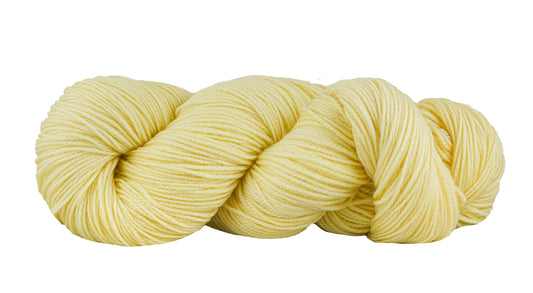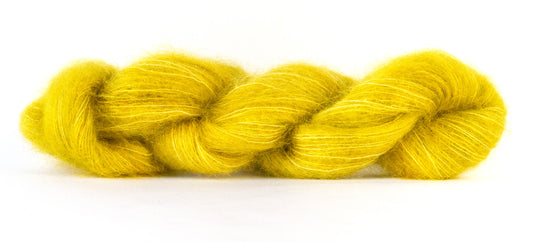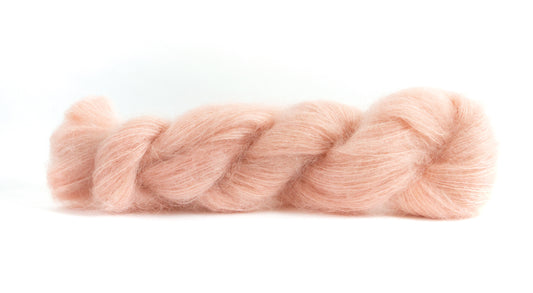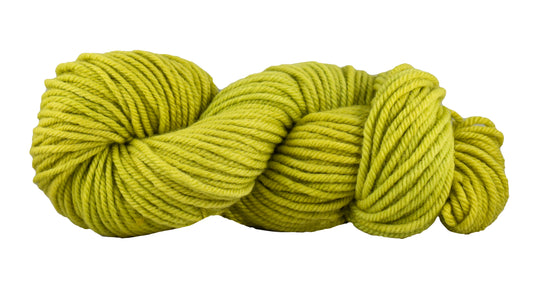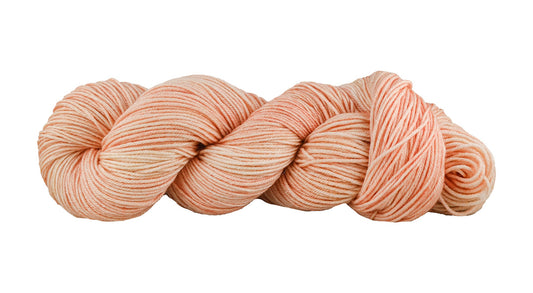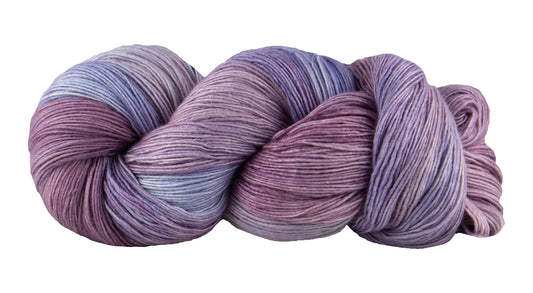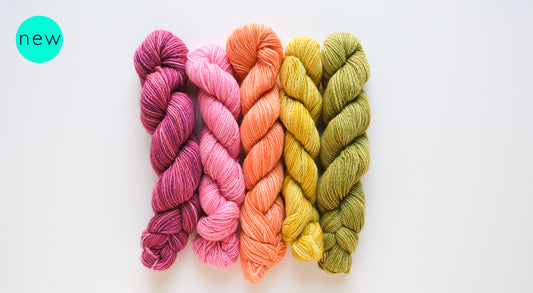About Manos del Uruguay Yarns
The Manos Cooperatives were founded in 1968, begun by five women whose goal was to develop economic opportunities for women in a country where there were, and are still, few opportunities for work.
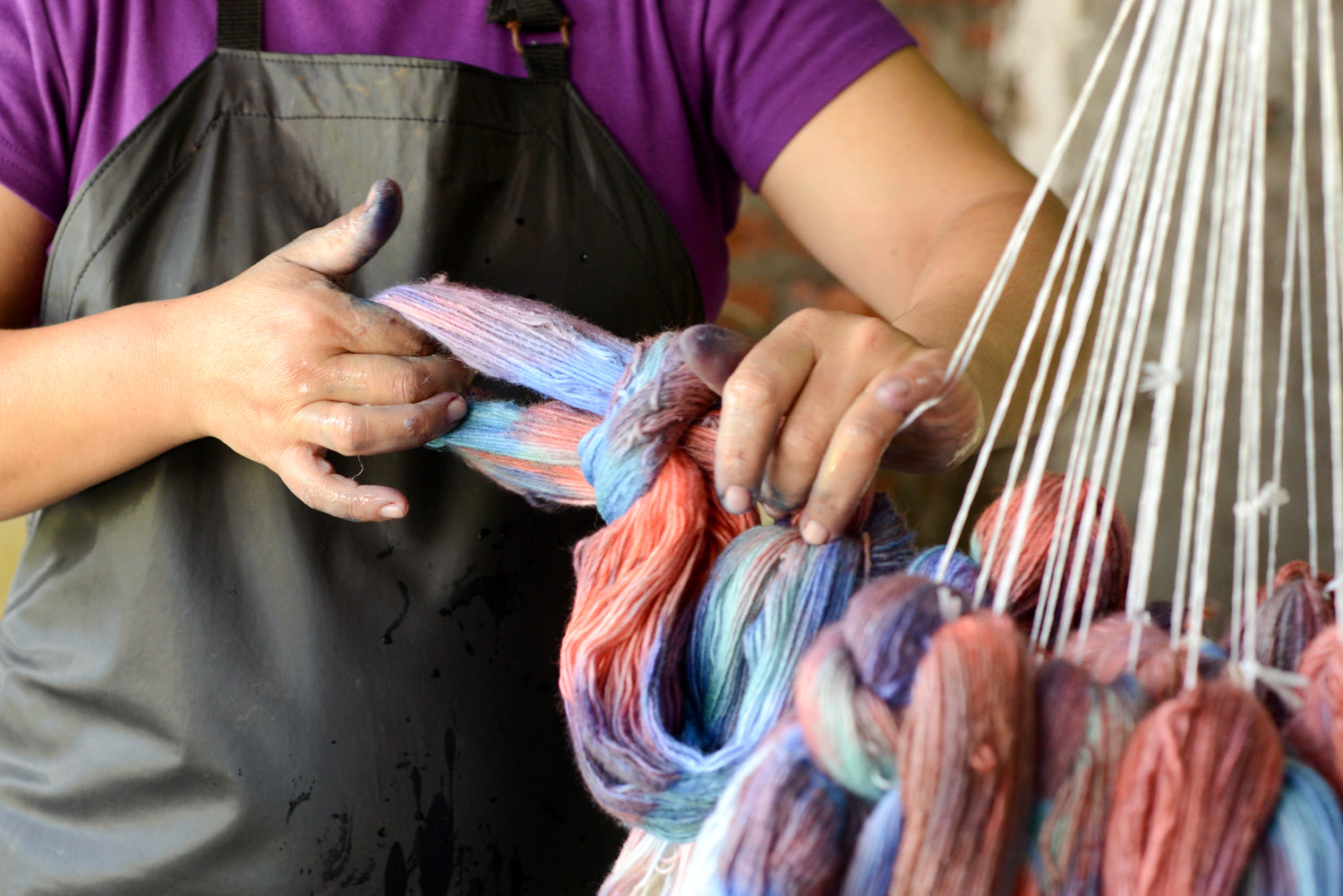
History of the Manos del Uruguay Cooperatives
“We all were happy to have an income derived of the products we made with our own hands, but there were also important changes. 40 years don’t seem like so much, but it was a really different time then. Women didn’t have their own incomes, the husband was the one working. This job took the women out of their homes and made them function individually. We were learning to group, have meetings, administrate money, make decisions, organize orders, deliveries and stock, take charge of all the coop’s needs and make ourselves responsible for them. We grew up and found aptitudes we hadn’t imagined we had. It was a revolution.”
– Elisabeth Sosa, artisan and former President of Manos board.
They began modestly, by selling handcrafts at local shops and the annual agricultural show in Montevideo. In time spinning, dyeing, weaving and knitting became the focus of the Coop’s efforts. Initially the “faded”, striated colors of Manos yarn were the result of heating yarn for dyeing in large, iron kettles over wood fires. Over the years, the dying process has been refined to provide consistency of color without losing what has become the trademark stria shading.
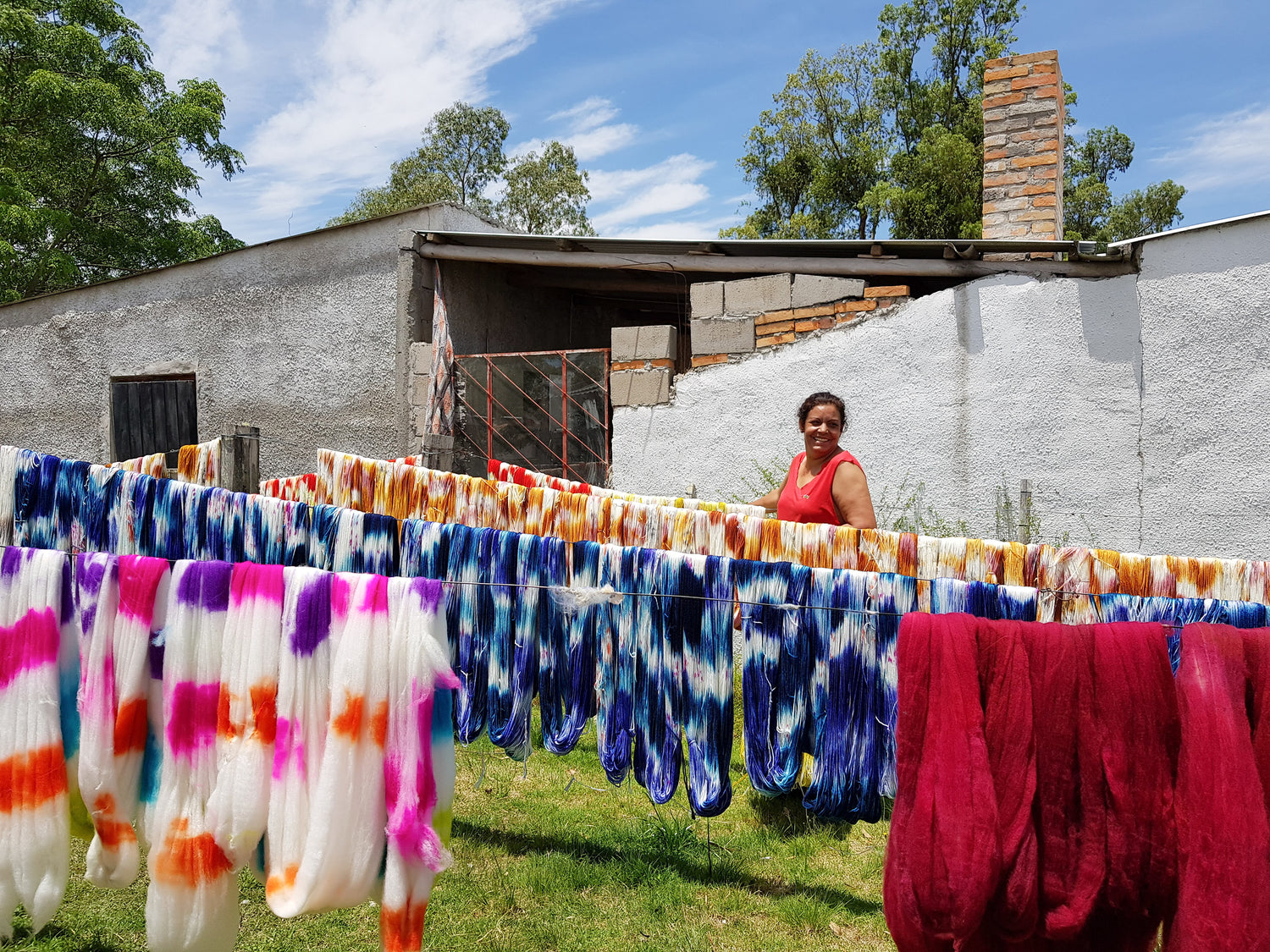
While the Cooperatives, collectively, are a large and well-organized business, each individual coop is still very much a small local business. At the Fraile Muerto Cooperative, in fair weather, chickens wander around the yard beneath the drying yarn. In the winter, production schedules have to allow for increased drying time, because there are no indoor drying facilities - all the yarns are line-dryed out-of-doors.
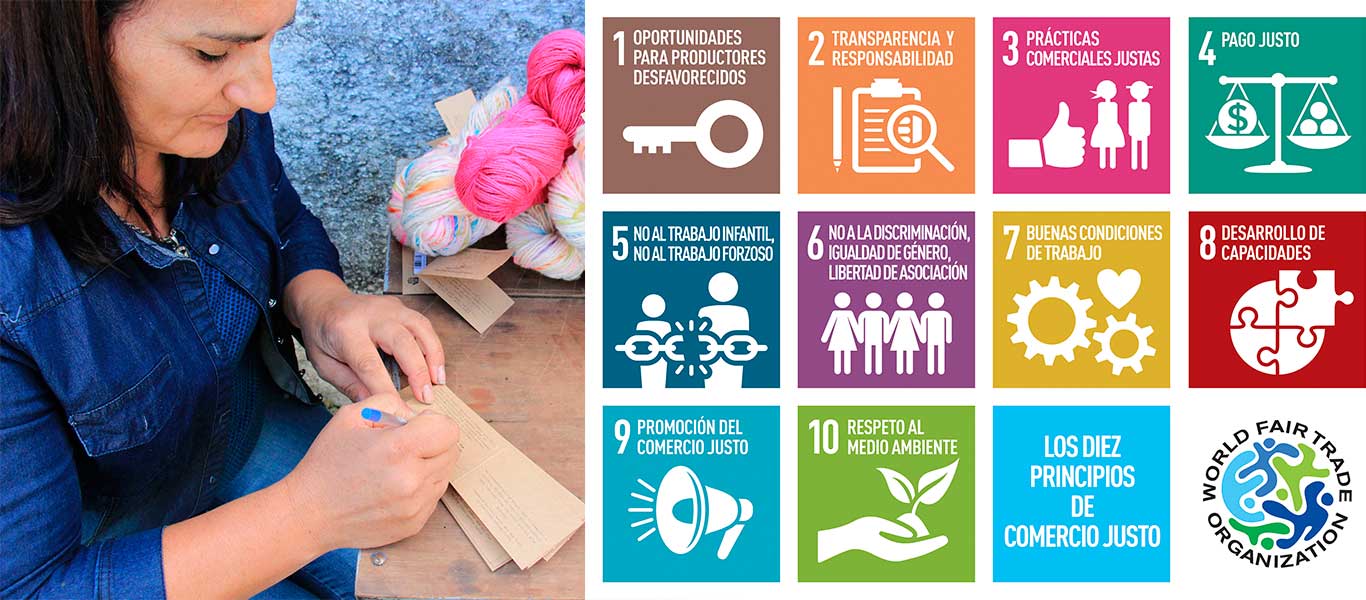
Manos is a member of the World Fair Trade Organization (WFTO)
-
Who is the WFTO?
More on the WFTOThe World Fair Trade Organization (WFTO) is the global community and verifier of enterprises that fully practice Fair Trade.
•
WFTO members are pioneers with a clear vision of what the economy should look like: one where profit-making does not come before the wellbeing of the people and the planet. They significantly differ from conventional profit-maximising models by embracing a triple bottom line that encompasses the well-being of people, the preservation of the planet, and the pursuit of sustainable profit.
-
10 Principles of Fair Trade
10 Principles of Fair Trade- Creating opportunities for economically disadvantaged producers
- Transparency and accountability
- Capacity building
- Promoting Fair Trade
- Payment of a fair price
- Gender Equality
- Safe and healthy work conditions
- Respect for the UN Convention on the Rights of the Child (child labor)
- Better environmental practices
- Trade with concern for the well-being of marginalized small producers
-
Manos and WFTO
About ManosThe 10 Principles of Fair Trade specify the ways that Fair Trade Enterprises are set up and behave to ensure they put people and the planet first. WFTO carries out verification and monitoring to ensure these principles are upheld.
•
Manos del Uruguay is a member of the WFTO, World Fair Trade Organization since 2009. As a Fair Trade organization, we are engaged in supporting producers, raising awareness and in campaigning for changes in the rules and practice of international trade.
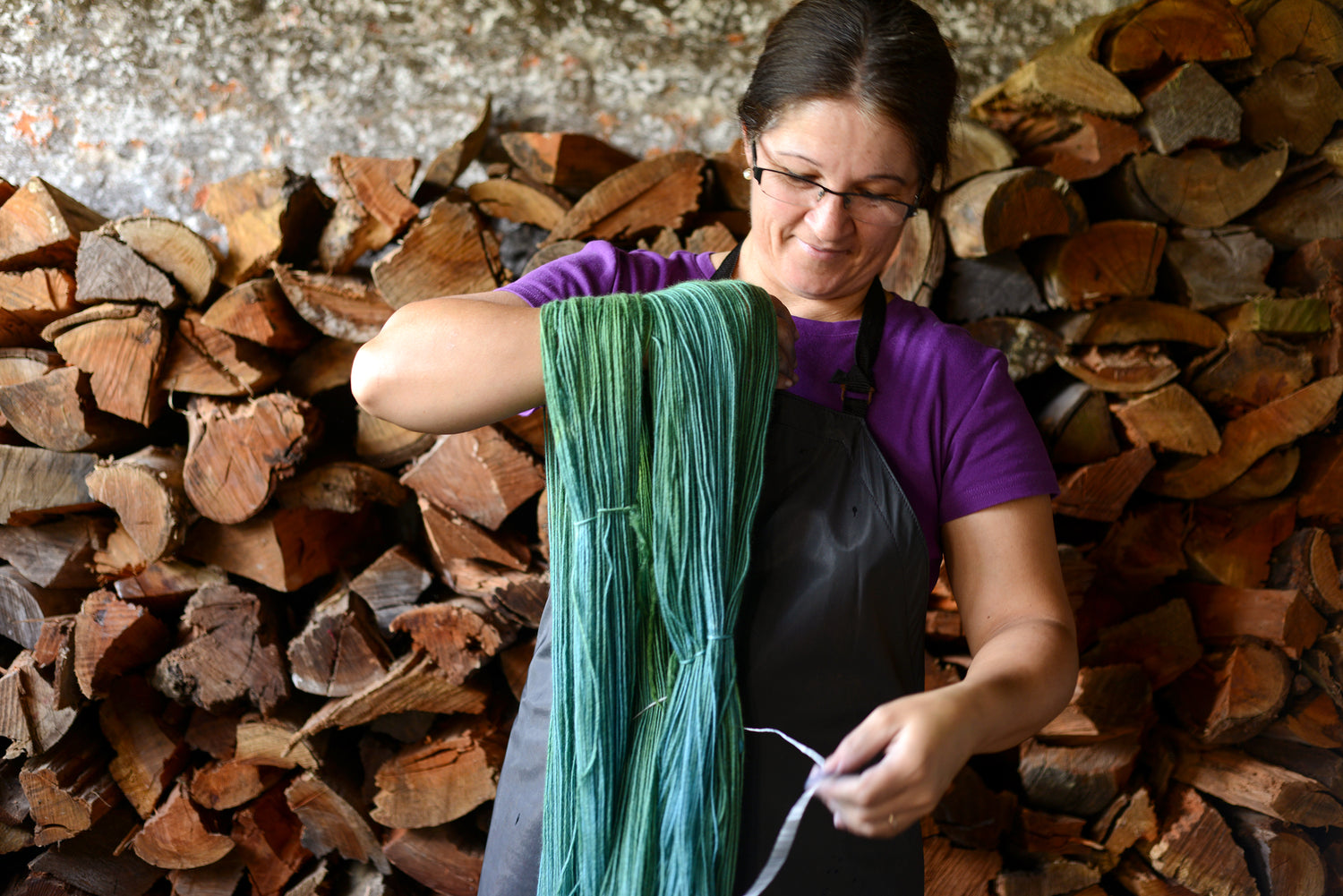
Proud to be Uruguayan
With each purchased skein of Manos del Uruguay yarn you will be helping a woman to support her family. Each skein is signed, so you will know who made your yarn, and from which village it came. You will be supporting the hand-crafted rather than mass-produced, and contributing to an economy where the workers control of the means of production. You, as a handknitter, crocheter or weaver, will be contributing to women’s careers in harmony with family life, and contributing to the landscape, and cultural heritage of Uruguay.
Manos del Uruguay Yarns
All of Manos del Uruguay yarns are hand dyed. The artisans use big kettles heated by wood-fueled boilers, dyeing in small batches creating wonderful colors. The colors of Manos yarns are bright and wild, full of nuances and variations. No two skeins are the same, each one is unique, a testimony of a particular moment.
-
Feliz (Discontinued)
Regular price $27.00 USDRegular priceUnit price / per$0.00 USDSale price $27.00 USD -
Fino Mini-Skein Kits
Regular price From $0.50 USDRegular priceUnit price / per$0.00 USDSale price From $0.50 USD

